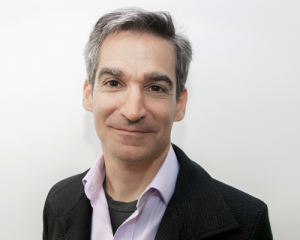The Dance for Recognition with Joel Levin

One of the most common pieces of feedback from IAP2 members, surveys and strategic planning consultations conducted over the years is the desire for the profession to be recognised.
The tussle between the engagement mindset and the project mindset, the PR mindset or even the politically expedient mindset seems to be a familiar grind for many. Practitioners can end up in a ‘ground hog day’ conversation with their clients, managers, and organisations as they try to get others to understand the value of engagement in helping them avoid the landmines that are so evident to us.
It makes sense to want the profession to carry more weight, when you see people avoiding what might seem to us like a small step towards more genuine engagement and less organisational pain!
It is also a worthy goal because the engagement profession has so much to offer society, let alone organisations. It won’t be the first (or the last time) I get called an idealist for suggesting that engagement offers so much more than a way for a project to communicate or offer influence to people. Engagement at its core is about relationships. This means that getting better at how we engage has the power to influence people in every walk of life.
Take a moment to step back from the project/s you are currently working on and let that concept sink in.
Engagement is about relationships and every facet of our lives are about relationships.
But what does this have to do with recognition of the profession?
While IAP2 works on a professional development agenda (outlined in the strategic plan, if you haven’t seen it!), there is one thing that each of us can be doing as members, practitioners, consultants or employees…value our lived experience.
Regardless of how long you have been an engagement practitioner, there is something you have lived, seen or experienced that has meant you have looked at the engagement approach and said: “YES, we need more of that.”
There is no university qualification that can replace that moment of “yes”.
Your lived experience matters and the authority that comes from understanding what you said “yes” to matters. It will change how you talk, how you walk and possibly even your relationship to those around you.
We can ask to be taken seriously or we can walk with what we know – an regardless of our level of experience, we know that this ‘stuff’ works. Of course, we need to back up our knowing with competence, but, if we are waiting for a set of post nominals after our name to justify the value of what we do, then we have missed the point and the power of the engagement practitioner’s journey to become a practitioner…lived experience.
What better way to understand how communities and stakeholders can feel railroaded by systems that have a pre-determined ideal of what ‘right’ is, than our own lived experience of the same thing. What better way to understand what it takes to support people to have a voice in situations of extreme power differentials, than our own lived experience of the same thing.
But it’s only valuable if we find our own voices, regardless of what piece of paper we have.
Professional recognition is needed and it is well on its way, but I would say that professional recognition starts with valuing our lived experience first. Talk from that authority and people will listen and if they don’t it’s not a sign of your lack of competence, because you know you have expressed in full what you had to offer.
From the Board with Joel Levin

